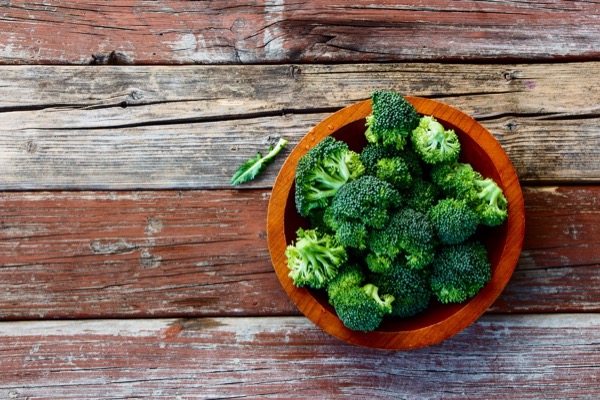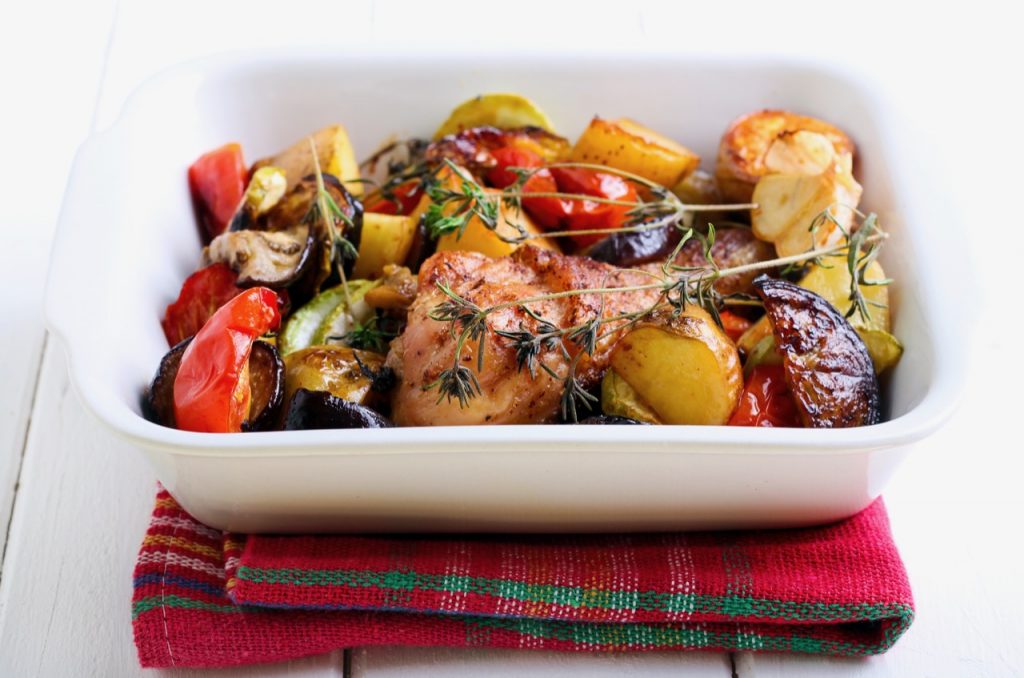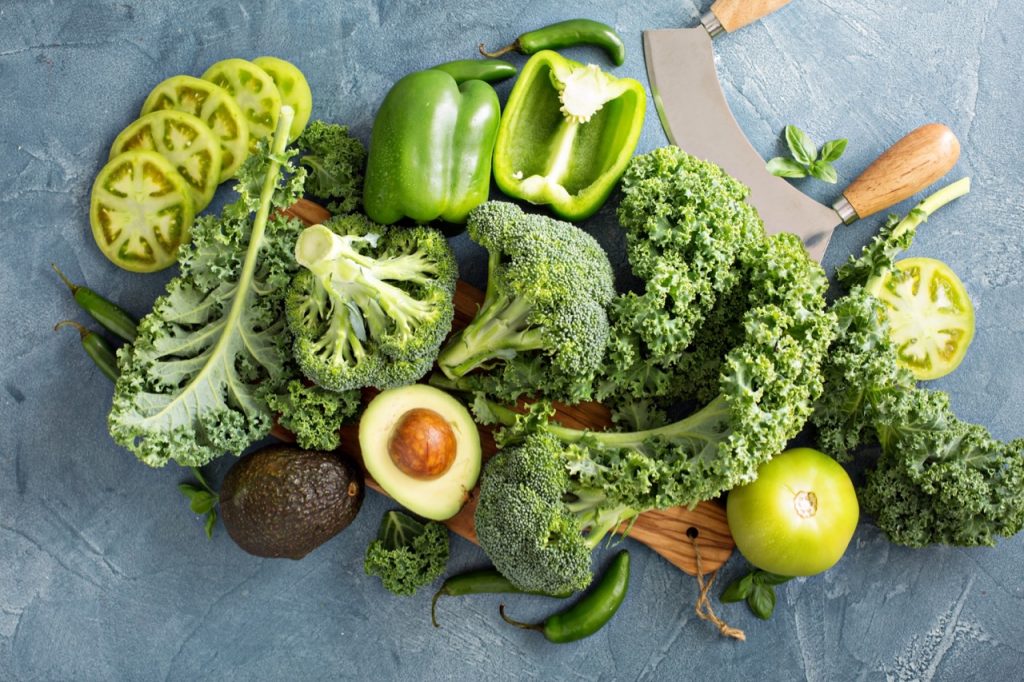Tackling PMS: a dietary and lifestyle approach

Struggling with PMS? Don’t hide under the covers for a few days each month and suffer in silence. There are a number of natural ways to help you through your menstrual cycle.
What is PMS?
Up to 95% of women of reproductive age will experience some degree of PMS. While most will only experience a mild form, around 5% of women may experience a more severe form of PMS called premenstrual dysphoric disorder, or PMDD. Symptoms of PMS are incredibly diverse and include emotional such as irritability and depression as well as physical (headaches, breast tenderness, muscle ache, bloating, sleep disturbances, acne, stomach pain).
There are a number of causes for PMS. While changes in hormone levels during the monthly cycle may play a role there are other factors involved including nutritional deficiencies.
Having higher blood estradiol levels during the second half of your cycle can result in more severe PMS.
For others high progesterone levels throughout the menstrual cycle appear to play a role. Often it is the balance between the two that is a key factor.
This is one of the reasons why supporting detoxification pathways particularly around oestrogen and ensuring healthy hormone metabolism is helpful in alleviating symptoms.

Brassica vegetables (e.g cabbage, broccoli, cauliflower etc) really help in this respect. They contain a phytochemical indole 3 carbinol which naturally breaks down in the gut to a constituent known as 3,3-diindolymethane (DIM). DIM supports healthy hormone metabolism and detoxification and can be an effective way to reduce symptoms.
For some women who have excess oestrogen compared to their levels of progesterone the herb Chaste Berry (Vitex agnus-castus) may be helpful. Vitex acts on the hypothalamic-pituitary-ovarian axis shifting the body’s oestrogen to progesterone ratio in favour of progesterone. In addition by directly binding to dopamine receptors, vitex helps lower prolactin levels, which in turn can help mitigate breast pain, irregular menstrual cycles, and infertility.
Key Nutrients
Nutritionally there are certain vitamins and minerals that have been shown to play a role. Here are just a few that have been linked to PMS symptoms.

Many people with PMS have probably heard of vitamin B6. B6 is one of the most studied nutritional intervention for the management of PMS. This is likely to be because your vitamin B6 status has significant influence on the production of the calming neurotransmitters serotonin and gamma-aminobutyric acid (GABA), which mitigate depression, anxiety, and pain perception. In fact, these neurotransmitters require pyridoxal-5-phosphate (P5P), the active form of vitamin B6, for their production.
A review of nine clinical trials on P5P representing over 900 patients concludes that P5P is of benefit in treating the symptoms of PMS, including depression. Foods rich in B6 include poultry, fish, wholegrain, eggs and soy. B6 also appears to combine particularly well with magnesium.
Dietary consumption of the B vitamins thiamine and riboflavin are also correlated with decreased risk of PMS, although supplementing with those same vitamins did not show the same effect
Magnesium is perhaps best known for its effects on easing muscular tension. Because the pain associated with menstrual cramps is caused by the cramping of the muscle fibres in the uterus, magnesium has been a long-time solution helping to ease this cramping.

Magnesium also has well-documented effects on mood, both in the context of PMS and in general and has been shown to help alleviate the emotional symptoms of PMS in some cases alongside calcium. Leafy greens are a great source of magnesium alongside nuts, seeds, beans and pulses.
Iron deficiency can actually be linked to more pronounced symptoms so get your levels checked and supplement if needed. This appears to be particularly relevant if you suffer with menstrual migraines.
Chromium is another mineral to consider especially when it comes to supporting insulin sensitivity and blood glucose levels. In a small study done with women suffering from premenstrual dysphoric disorder (PMDD), a severe form of PMS, a short-term course of chromium supplementation was shown to improve menstrual cycle-related mood symptoms like depression. Other studies suggest that those with PMS have lower levels of key nutrients including chromium.
I also find women who struggle with cramping benefit from taking electrolytes – particularly potassium, magnesium along with calcium. I like to use ELYTE and / or Bio CMP from Biotics Research
Vitamin D is another nutrient reported to have beneficial effects on PMS. A 2018 study found that vitamin D supplementation was associated with a reduction in the incidence of several symptoms of PMS in adolescent women, such as backaches and fluctuations in mood, as well as a decrement in pain severity. A meta-analysis concluded that vitamin D supplementation “was effective in ameliorating PMS symptoms.” Another study focused on adolescents who were known to be low in vitamin D, and supplementation over four months led to improvements in PMS-related symptoms like irritability, crying easily, and disturbed relationships. However, not all studies have found significant results.
Diet & Lifestyle Matters
Following a nutrient dense, lower carbohydrate diet can be particularly helpful for PMS sufferers. First start reducing your intake of processed foods, sugars and refined carbohydrates. Watch salt intake especially around menstruation can also ease water retention and bloating.
Omega 3 fats have also been shown to be beneficial so aim to include 2-3 portions of oily fish weekly and have 1tbsp mixed seeds daily. I also like this supplement.
You also want to look at including foods to support detoxification pathways (fibre rich foods, probiotics, cruciferous vegetables). Smoking, alcohol consumption have been shown to increase the likelihood of PMS so ditch the booze and stop smoking.
Dietary patterns can also influence symptoms. A new study of 311 women in Spain supports the dietary connection. In this study, women who followed a Mediterranean diet with high vegetable, fruit, and olive oil, and low alcohol, reported better period outcomes: shorter menstrual cycles and less pain.
Supporting the notion of dietary patterns mattering for PMS symptoms, a conventional Western diet has been associated with increased risk of PMS as has consumption of junk food and dysmenorrhea. Dietary modifications can make a difference. For instance, over a three-month period, replacing four servings a day of refined grains with whole grains reduced PMS symptoms significantly in a cohort of adult women.

Lifestyle factors are equally important. While you may not feel like exercising around your period it has been shown to alleviate many of the symptoms. Equally managing stress and getting sufficient sleep are important.

